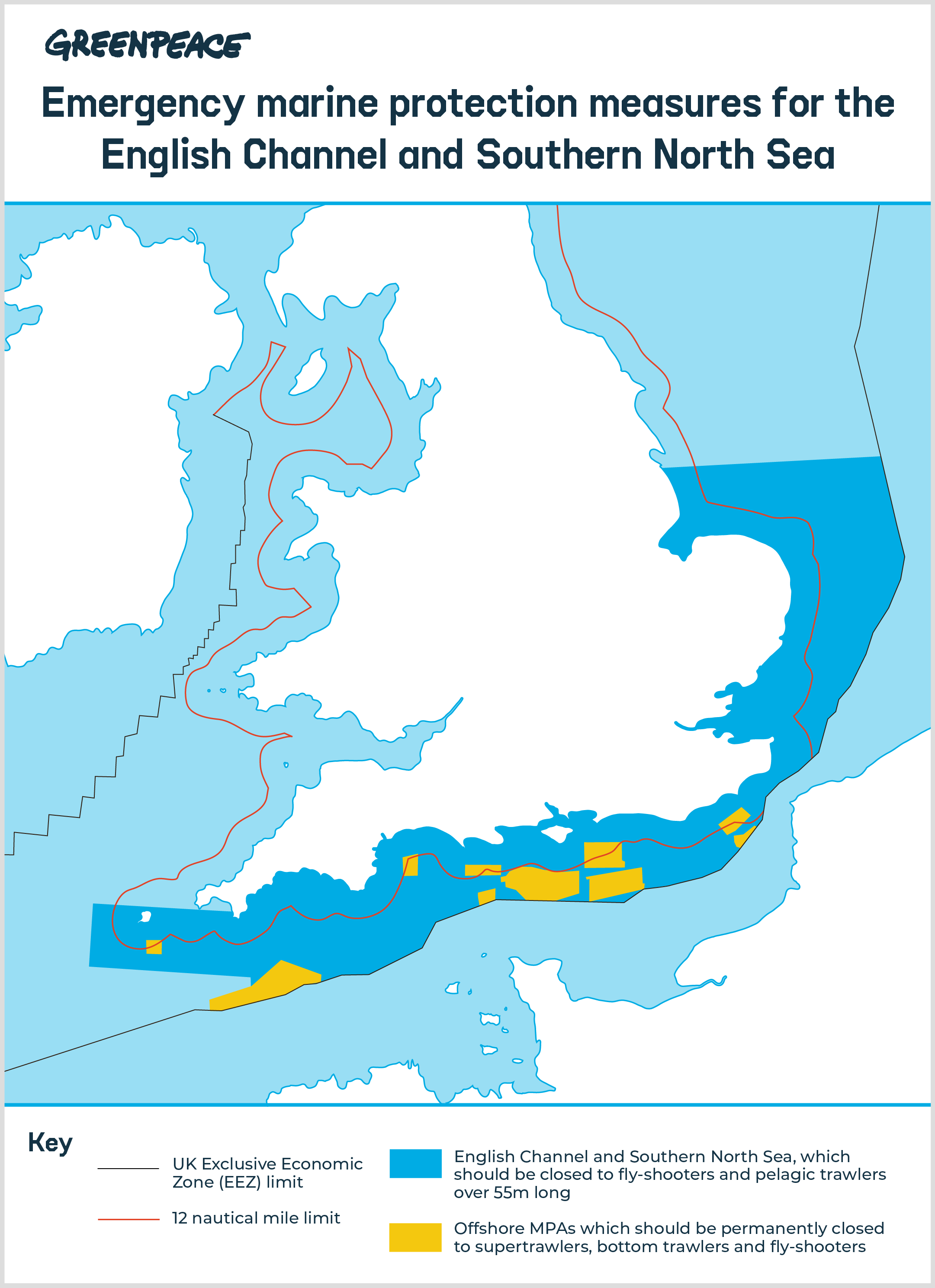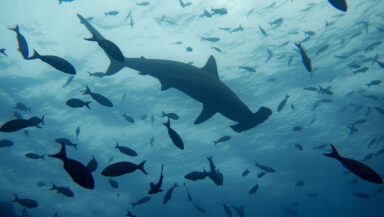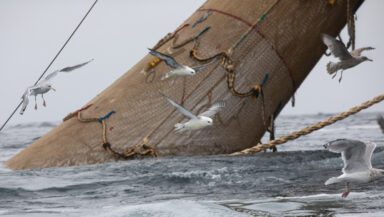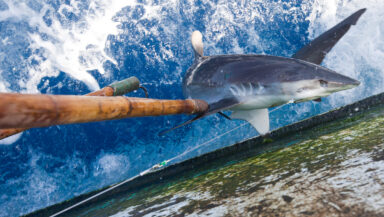The UK’s oceans and coastal communities are in crisis. Just one third of our fish populations are in a healthy state. Industrial fishing vessels like supertrawlers and fly-shooters have immense catching capacity and are pushing marine ecosystems and fish populations to the brink of collapse, leaving local fishermen with nothing left to catch.
Greenpeace has been working with local fishermen all summer to document the destruction of the UK’s seas by industrial fishing. When you’re on the water, it’s very clear: our fishing communities – especially in the English Channel and Southern North Sea – are at breaking point.
Without urgent action, our oceans will be damaged beyond repair and our fishing communities won’t survive. The government has used new post-Brexit powers to ban electric pulse trawling, a perfect example of what is possible when there is political will. Australia banned supertrawlers like the Margiris from their waters over 5 years ago, but the UK has continued to let them fish here.
The government has not properly assessed the environmental impacts of fly shooting, yet such vessels are licenced to fish in UK waters and Defra has removed all catch limits for fly shooters targeting non-quota species for 2021. This fundamentally conflicts with the precautionary objective in the Fisheries Act.
That’s why we, England’s local fishermen, anglers, charter skippers, local businesses, Greenpeace and New Economics Foundation, call on our government to protect our oceans and fishing communities – beginning with the following measures:
English Channel:
- For the 10 offshore Marine Protected Areas (MPAs) that have been designated in the English Channel more than 12 nautical miles from the coast, supertrawlers over 100 metres, bottom trawlers and fly shooters should be banned immediately and permanently (see map below). This will help marine ecosystems to recover from intense fishing pressure and impacts on the seabed, revitalise fish populations and help local fishermen by boosting catches and reviving coastal communities. And it would be a vital step towards the scientifically supported target of fully protecting at least 30% of our oceans by 2030.
- Pelagic trawlers over 55 metres and fly shooters should be banned immediately from the entire English Channel, on the grounds of the precautionary objective in the Fisheries Act, and based on the immense threat these fishing methods pose to the livelihoods of fishermen along the south coast. This would also protect local fishermen from any displacement of industrial vessels banned from English Channel offshore MPAs. A full and thorough assessment should be done of the environmental and local economic impacts of both fishing methods in the waters of the English Channel before any decisions about granting fishing licences are made.
Southern North Sea:
- Pelagic trawlers over 55 metres and fly shooters should be banned immediately from the entire Southern North Sea, on the grounds of the precautionary objective in the Fisheries Act, and based on the immense threat these fishing methods pose to the livelihoods of fishermen along the coast of the Southern North Sea. This would also protect local fishermen from any displacement of industrial vessels banned from English Channel offshore MPAs. A full and thorough assessment should be done of the environmental and local economic impacts of both fishing methods in the waters of the Southern North Sea before any decisions about granting fishing licences are made.
Additional steps must also be explored to support fishermen operating within the 6 – 12 nautical mile zone in both the English Channel and Southern North Sea, in light of the threat posed by large scallopers and large beamers.

We must seize this once-in-a-generation opportunity to save our oceans and our fishermen.
Signed:
- Eastbourne Fisherman’s Association
- Fishing Industry Innovative Supply Hub Newhaven (FIISH)
- Hastings Fishermen’s Protection Society
- Lowestoft Fish Market Alliance
- Newhaven Fish & Flake Ice Society
- New Under Ten Fishermen’s Association (NUTFA)
- Pesky Fish
- Sole of Discretion
- South Coast Skippers Council
- Thanet Fishing Association
- Yorwarth’s Fresh Fish
- Angling Trust
- Blue Marine Foundation
- BLOOM
- Greenpeace UK
- New Economics Foundation
- Oceana
- Pleine Mer
- Transnational Institute
Fishermen, fishing associations, businesses or NGOs who wish to sign up to the declaration, or receive information about joining fishing boats and Greenpeace on Wednesday 22nd September when they sail up the Thames to Parliament to make these demands, please email fish.uk@greenpeace.org or call Will on 07863358686.



